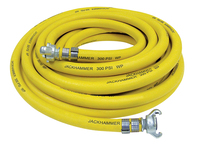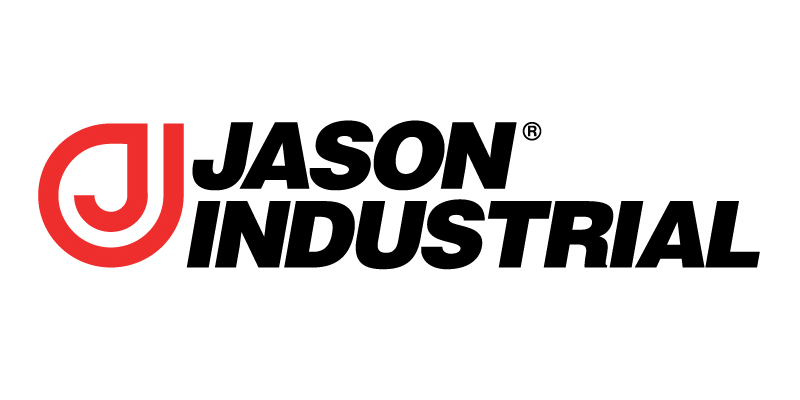
Hoses, Tubes & Fittings
Hoses are flexible tubes that allow the flow of liquids, gases, or even some solid materials providing the movement, measurement, and regulation of fluids and air to achieve desired outcomes in fields such as manufacturing, chemical processing, pharmaceuticals, food and beverage production, etc. Made of materials like rubber, plastic, or metal, a hose can be categorized according to its purposes, such as Air Hose, Hydraulic Hose, Chemical Hose, Food-Grade Hose, and others.
Fittings are mechanical components used to connect hoses or pipes in a system providing a secure and leak-proof connection while allowing for easy disconnection if required. Common types of fittings include couplings, valves, connectors, adapters, and others that can be made of materials like brass, stainless steel, plastic, or alloy.
Tubes are rigid cylindrical components used to convey fluids, gases, or other materials. They are well-suited in applications where flexibility is not required, or the system operates under high pressures or extreme conditions.
When selecting a hose, fitting, or tube, it is important to consider several factors including pressure levels, temperature ranges, compatibility with chemicals or solvents, and the applications they should be utilized.
HVH Industrial works with manufacturers' specialized engineering teams to meet our customer's requirements and highest quality standards.
If you have any questions, write us via live chat (one of our team members will answer your questions), call, or send us a quote request (we typically reply in less than one hour). The HVH team is always ready to help you.
 1(866)577-4040
1(866)577-4040
or
Hoses, Tubes and Fittings
Manufacturers
What are Hoses
Hoses are flexible tubes that play a crucial role in enabling the efficient flow of liquids, gases, and even solid materials. They provide the means for movement, measurement, and regulation of fluids and air, contributing to the achievement of desired outcomes in various industries such as manufacturing, chemical processing, pharmaceuticals, food and beverage production, and many others. With their versatility and reliability, hoses have become an indispensable part of modern industrial processes.
Types of Hoses
Air Hoses
Air hoses are specifically designed for the transportation of compressed air. They are commonly used in pneumatic systems, construction sites, workshops, and automotive applications. Air hoses are engineered to withstand high pressure and provide flexibility, making them essential components for powering pneumatic tools and equipment.
Hydraulic Hoses
Hydraulic hoses are designed to transmit hydraulic fluid under high-pressure conditions. They are utilized in hydraulic machinery, such as construction equipment, agricultural machinery, and industrial machinery. Hydraulic hoses are constructed to withstand extreme pressure and temperature variations, ensuring efficient power transmission and control.
Chemical Hoses
Chemical hoses are engineered to transport a wide range of chemicals safely. They are resistant to corrosion, abrasion, and the effects of different chemicals. Chemical hoses find applications in industries such as chemical processing, pharmaceuticals, and manufacturing, where the safe handling and transfer of chemicals are paramount.
Food-Grade Hoses
Food-grade hoses are specifically designed to meet the stringent requirements of the food and beverage industry. These hoses are made from materials that comply with food safety standards, ensuring the hygienic transfer of food and beverages. Food-grade hoses find applications in food processing, dairy production, breweries, and other related industries.
Material Handling Hoses
Material handling hoses are designed for the efficient transportation of solid materials, including granules, powders, and abrasive substances. They are commonly used in industries such as mining, agriculture, and construction. Material handling hoses are built to withstand the abrasive nature of the materials being transported, ensuring durability and reliability.
Jason Mine Spray Hoses
Jason Mine Spray Hoses are specialized hoses designed for underground mining applications. These hoses are engineered to withstand the harsh conditions found in mining environments, including exposure to chemicals, abrasion, and fire. Jason Mine Spray Hoses are vital for maintaining safety standards and providing a reliable water supply in mining operations.
Petroleum and Oilfield Hoses
Petroleum and oilfield hoses are specifically designed for the transfer of petroleum products, including crude oil, gasoline, and diesel. These hoses are built to handle the high-pressure and temperature requirements of the oil and gas industry. Petroleum and oilfield hoses ensure the safe and efficient transfer of petroleum products during extraction, processing, and distribution.
Applications of Hoses
Hoses find extensive applications in numerous industries. Some of the key areas where hoses are essential include:
Manufacturing: Hoses are used in manufacturing processes for the efficient transportation of raw materials, chemicals, and finished products.
Chemical Processing: Chemical hoses enable the safe transfer of corrosive and hazardous chemicals, ensuring the integrity of the production process.
Pharmaceuticals: Hoses are utilized in pharmaceutical manufacturing to transfer liquids, creams, and other substances with precision and sterility.
Food and Beverage Production: Food-grade hoses play a critical role in the hygienic transfer of food and beverages, ensuring compliance with safety regulations.
Construction: Hoses are used in construction projects for applications such as concrete pumping, dewatering, and material handling.
Agriculture: Hoses are employed in agricultural activities for irrigation, pesticide spraying, and the transportation of fertilizers.
Choosing the Right Hose
When selecting a hose for a specific application, several factors need to be considered:
Consideration Factors
Material Compatibility: Choose a hose material that is compatible with the substance being transported to prevent degradation or contamination.
Temperature and Pressure Ratings: Ensure that the hose can withstand the temperature and pressure conditions of the application without compromising its integrity.
Flexibility and Bend Radius: Consider the flexibility and bend radius requirements to ensure ease of installation and maneuverability.
Size and Length: Select the appropriate hose size and length to meet the flow requirements of the system.
Conclusion
Hoses are fundamental components in various industries, enabling the movement, measurement, and regulation of fluids and air. With their diverse applications and material options, hoses contribute significantly to the efficiency, safety, and reliability of industrial processes. By choosing the right hose and implementing proper maintenance practices, businesses can optimize their operations and achieve desired outcomes.













